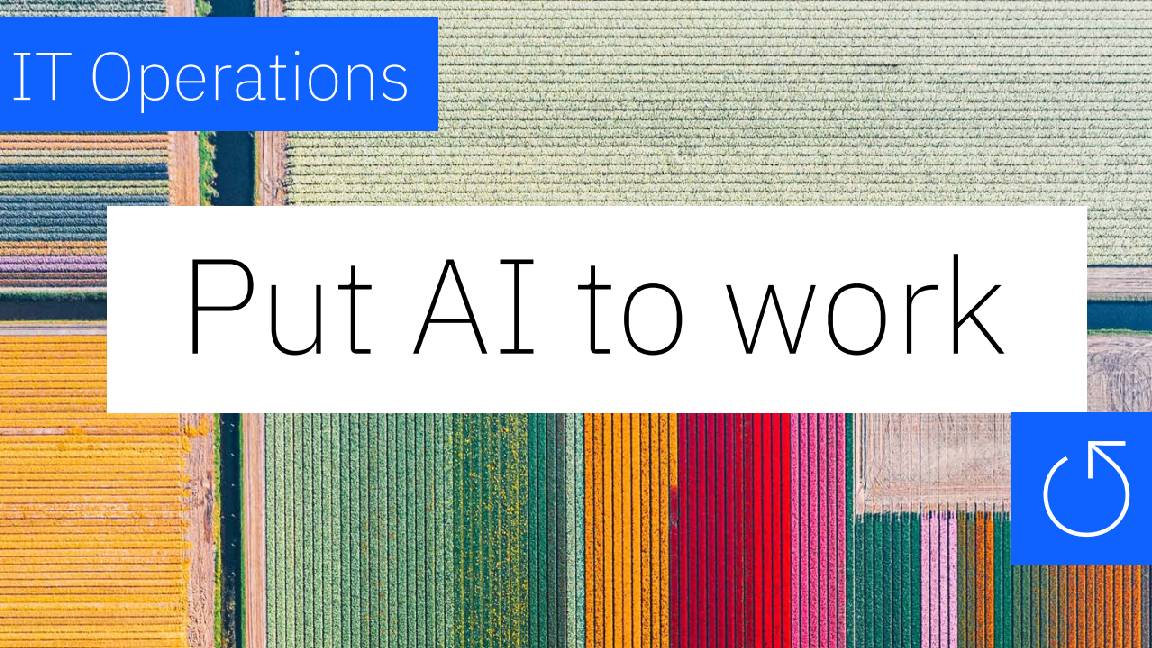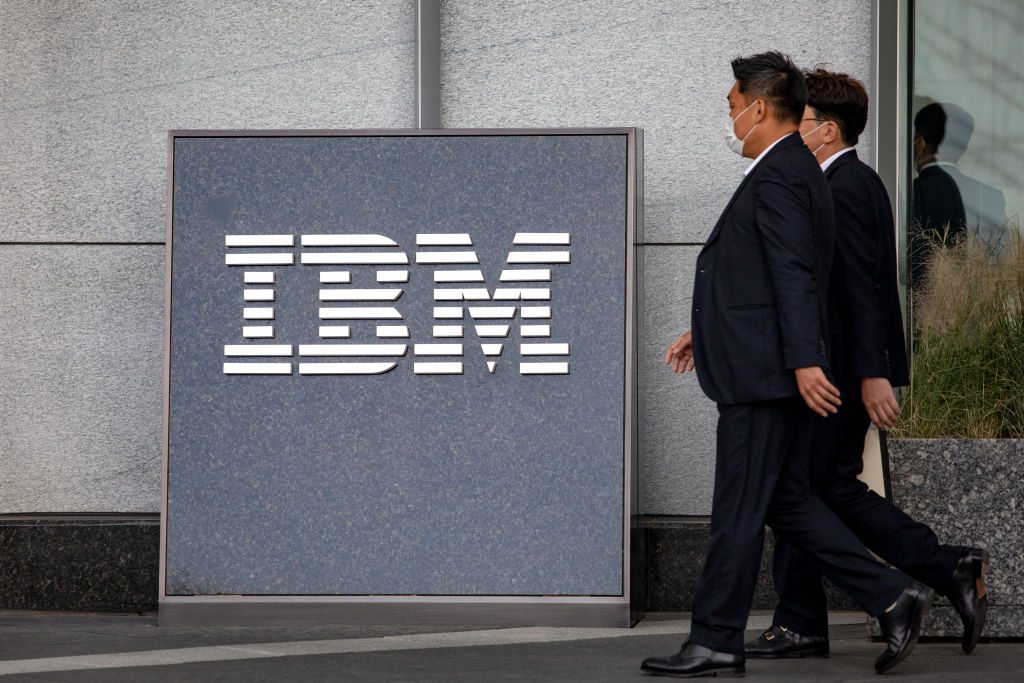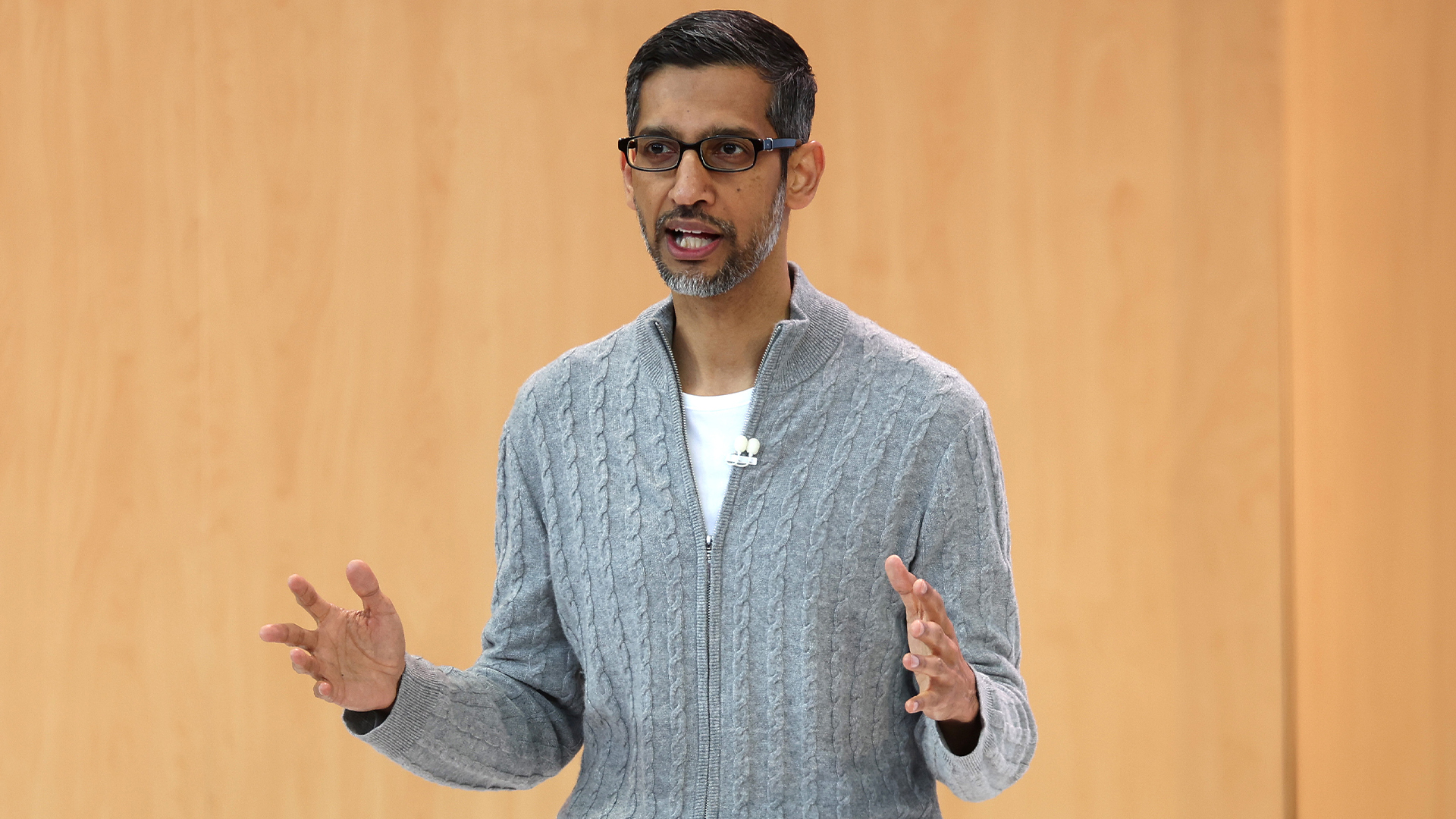Big tech quarterly earnings buoyed by generative AI interest
Surging interest in generative AI appears to be underpinning recent earnings results


Promising quarterly earnings results at a host of major tech firms suggest the maturation of artificial intelligence (AI) is becoming a key pillar for revenue generation.
Amazon, IBM, Microsoft, Alphabet, and Intel have all credited recent revenue successes in part to AI products driving the performance of key business segments.
IBM recorded a year-on-year revenue increase of 4.6% to $14.8 billion this week despite lingering economic uncertainty. The firm’s strongest performing segment was software with 7.8% revenue growth, driven by a strong performance in its cloud and automation services.
Revenue in its data and AI solutions also increased by 6% year-on-year.
On an earnings call, IBM chief executive Arvind Krishna said increased adoption of the firm’s watsonx AI and data platform alongside its hybrid cloud services were underpinning solid growth in its software and consulting businesses.
Krishna added that growing interest in AI and cloud services points to a renewed optimism for the year ahead.
In a similar vein, Amazon views AI and cloud, as well as its advertising business, as key elements to their future growth strategy. AWS revenue grew 12% year-on-year to $23.06 billion, helping stabilize a decline in sales growth from previous quarters.
Get the ITPro daily newsletter
Sign up today and you will receive a free copy of our Future Focus 2025 report - the leading guidance on AI, cybersecurity and other IT challenges as per 700+ senior executives
The tech giant’s generative AI framework, Bedrock, has garnered immense excitement in recent months. IBM recently announced the general availability of Bedrock to customers globally, and CEO Andy Jassy suggested the firm's continued focus on generative AI is delivering significant benefits for customers.
Microsoft and Intel cash in on generative AI promise
Microsoft, which struck an early lead in the generative AI race this year, also surpassed expectations in its quarterly earnings call. The firm recorded revenue of $56.5 billion, marking an increase of 3.6% and exceeding analyst forecasts.
Again, AI’s role in this can be seen in the 19% revenue increase for Intelligent Cloud to $24.3 billion.
Microsoft’s Intelligent Cloud department includes Azure and other cloud services which underpin the company’s AI solutions. Year-on-year revenue growth of 29% at Azure reflects the key role generative AI is playing to bolster financial performance, the firm said.
Intel’s shares are up 7%, aided in part by a rebound in PC chip sales and also by the wider implementation of its AI technologies, according to company execs.
RELATED RESOURCE

Discover how you can turn your workforce into a talent juggernaut
DOWNLOAD NOW
The company’s foundry revenues increased by 299% year-on-year to $311 million, with its Datacentre and AI segment representing just over a quarter of the total $14.2 billion revenue.
CEO Pat Gelsinger attributed the firm's "outstand quarter" to the ongoing momentum surrounding AI.
“We delivered a standout third quarter, underscored by across-the-board progress on our process and product roadmaps, agreements with new foundry customers, and momentum as we bring AI everywhere," he said.
Concerns for Alphabet
Alphabet, parent company of Google, saw its total revenue increase by 11% year-on-year to $76.69 billion, but did report poorer than expected performance in its cloud services segment with operating income from $440 million to $266 million.
Alphabet CEO Sundar Pichai said this was due to external challenges meaning “customers [are] looking to optimize spend”.
However, this does potentially signal that Microsoft’s impressive cloud performance might be impinging on Alphabet’s cloud customer base.
Despite the dip in its cloud segment, Alphabet was bolstered by gains in income from Google services, with a 26% increase year-on-year.
In his statement, Pichai emphasized the importance of AI-driven innovations across the company’s divisions, suggesting that current investment is positioning generative AI as a core aspect of its broader cloud computing strategy.

Solomon Klappholz is a former staff writer for ITPro and ChannelPro. He has experience writing about the technologies that facilitate industrial manufacturing, which led to him developing a particular interest in cybersecurity, IT regulation, industrial infrastructure applications, and machine learning.
-
 Bigger salaries, more burnout: Is the CISO role in crisis?
Bigger salaries, more burnout: Is the CISO role in crisis?In-depth CISOs are more stressed than ever before – but why is this and what can be done?
By Kate O'Flaherty Published
-
 Cheap cyber crime kits can be bought on the dark web for less than $25
Cheap cyber crime kits can be bought on the dark web for less than $25News Research from NordVPN shows phishing kits are now widely available on the dark web and via messaging apps like Telegram, and are often selling for less than $25.
By Emma Woollacott Published
-
 Google Cloud Next 2025: Targeting easy AI
Google Cloud Next 2025: Targeting easy AIITPro Podcast Throughout its annual event, Google Cloud has emphasized the importance of simple AI adoption for enterprises and flexibility across deployment
By Rory Bathgate Published
-
 Google DeepMind’s Demis Hassabis says AI isn’t a ‘silver bullet’ – but within five to ten years its benefits will be undeniable
Google DeepMind’s Demis Hassabis says AI isn’t a ‘silver bullet’ – but within five to ten years its benefits will be undeniableNews Demis Hassabis, CEO at Google DeepMind and one of the UK’s most prominent voices on AI, says AI will bring exciting developments in the coming year.
By Rory Bathgate Published
-
 Google Cloud announces UK data residency for agentic AI services
Google Cloud announces UK data residency for agentic AI servicesNews With targeted cloud credits and skills workshops, Google Cloud hopes to underscore its UK infrastructure investment
By Rory Bathgate Published
-
 Microsoft sharpens agentic AI focus with new ‘CoreAI’ division
Microsoft sharpens agentic AI focus with new ‘CoreAI’ divisionThe new department will bring together teams from across engineering and AI
By George Fitzmaurice Published
-
 Put AI to work for IT operations
Put AI to work for IT operationswhitepaper Reduce the cost and complexity of managing hybrid applications
By ITPro Published
-
 AI in the retail industry is spreading beyond the IT department
AI in the retail industry is spreading beyond the IT departmentNews AI has become a strategic imperative for retailers, delivering marked productivity gains
By Emma Woollacott Published
-
 Maximizing contact center operations with generative AI assistants backed by responsible AI principles
Maximizing contact center operations with generative AI assistants backed by responsible AI principleswhitepaper Reduce the cost and complexity of managing hybrid applications
By ITPro Published
-
 Google jumps on the agentic AI bandwagon
Google jumps on the agentic AI bandwagonNews Agentic AI is all the rage, and Google wants to get involved
By Nicole Kobie Published
